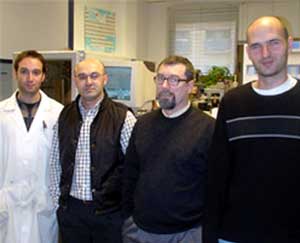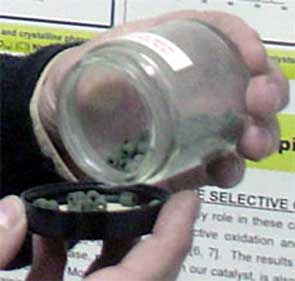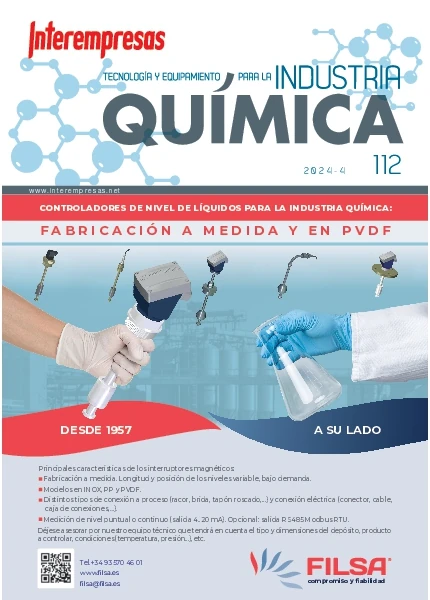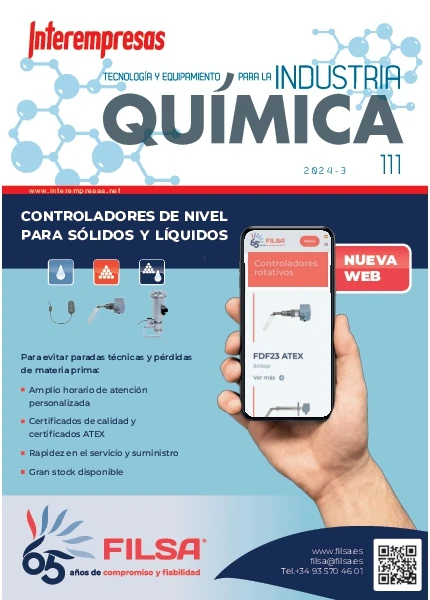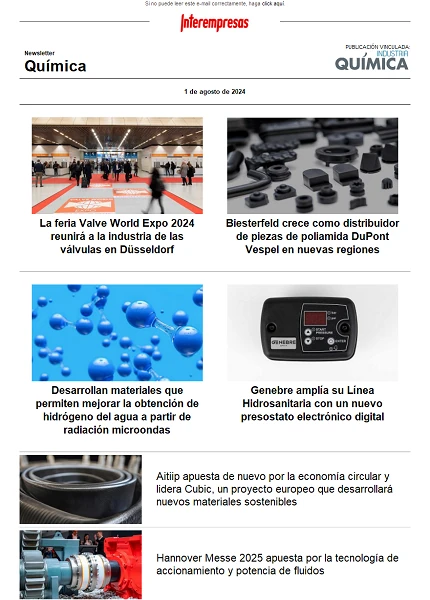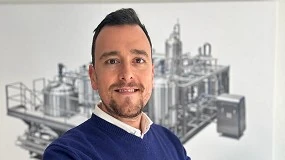This news article was originally written in Spanish. It has been automatically translated for your convenience. Reasonable efforts have been made to provide an accurate translation, however, no automated translation is perfect nor is it intended to replace a human translator. The original article in Spanish can be viewed at
Un nuevo catalizador para la petroquímica reduce un 30% el coste del procesoGet acrylic acid and acrylonitrile from propane
A new catalyst for petrochemicals 30% reduces the cost of the process
OTT-CSIC Valencia. M. Jesus Añón
mjanon@dicv.CSIC.es01/06/2006
The CSIC researchers have developed an effective catalyst for the production of acrylic acid and acrylonitrile from propane, which might reduce up to 30 per cent the cost of existing processes.
The research group, from left to right: Francisco Ivars, Pablo bottle, José M. López Nieto, Benjamin Solsona.
A team of scientists at the Institute of chemical technology (ITQ), Joint Center of the CSIC and the Polytechnic University of Valencia, has developed a catalyst more active and profitable than they were for the production of acrylic acid and acrylonitrile from propane and in one step, with applications in the petrochemical and textile industries. The technology has already been patented and the research is in phase of pilot plant. The Center seeks to reach an agreement of technical cooperation for their development on an industrial scale.
The researchers, who are part of the structural unit of catalysts, catalytic processes and chemical reactors of the Institute, has achieved a considerable return economic and environmental in the reaction of transformation of propane to acrylic acid and acrylonitrile, carboxylic acids that are used in the industry for the production of plastic and synthetic resins.
Currently, the production of acrylic acid and acrylonitrile is achieved from propylene in an industrial process known as oxidation or selective amoxidación of olefins.
José Manuel Lopez Nieto, the CSIC Research Professor and head of this research, explains that the replacement of the propylene by propane was a complex challenge, "the first, is more reactive and allowed work to lower temperatures"", which facilitated the selectivity of the process."
But the ease of use of the propylene, continues explaining, it contrasts with its important economic cost, and it required a considerable number of chemical processes for its synthesis. This also implies a high environmental cost by the increased generation of carbon dioxide.
The replacement of the olefin, as the propylene, oil saturated, like propane and Isobutane, is of great interest economic and industrial, given that there is a surplus, and they can be obtained directly from natural gas.
Lopez Nieto team has located and taken advantage of the qualitative advantages of propane for the obtaining of carboxylic. Currently research is are also aimed at the development of new catalysts for the use of Isobutane instead of isobuteno in the synthesis of metacroleina and methacrylic acid, of great interest in the production of polymer metacrílicos.
Currently, the production of acrylonitrile is around 120,000 tonnes per year in Spain
Qualitative advantages and industrial interest
The new catalyst developed by the team of López Nieto is most active and stable with other proposed recently to the oxidation/amoxidación of propane.
The patented catalyst denotes a stability more than catalytic converters proposed in this area and has a long useful life
The catalyst is based on a mixture of metal oxides with a defined structure and achieved a performance which is located around 45 per cent, in the case of acrylic acid and 55 per cent for the acrylonitrilerepresenting figures close to the industrial requirement, encrypted by 60 percent.
In the same way, the proprietary catalyst denotes a stability more than catalytic converters proposed in this area and has a long shelf life without suffering significant deactivation process. Also, new technology is an interesting alternative to the existing process, because of its lower environmental impact (it is very selective and generates few by-products) and by low cost, given a cheaper raw material used. Lopez Nieto details that "the use of paraffin instead of olefins in obtaining monomers represents a lowering of the raw material of up to three times".
Samples of the catalyst developed at the Institute of chemical technology.
The patent is designed for the synthesis of effective catalysts for the production of monomer (acrylonitrile, acrylic acid). However, future projects include the adapt these catalysts for the production of polymer metacrílicos of great use in the manufacture of textile or plastic.
It is an interesting alternative to the existing by its low-cost process, since it uses a cheaper raw material
The catalyst is a high interest for companies engaged in the production of catalysts for petrochemical companies that do this kind of processes of selective oxidation of hydrocarbons.
The production of acrylonitrile is currently around 120,000 tonnes per year in Spain and around three million tonnes per year worldwide.
Related Companies or Entities
Consejo Superior de Investigaciones Científicas
